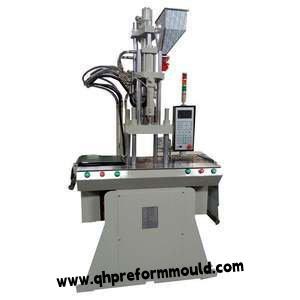Can Handle Mold Improve Predictability And Safety Across Daily Applications

The design and development of Handle Mold plays a significant role in enhancing user interaction with containers across multiple environments. Reports from manufacturing analysis indicate that ergonomic shaping directly affects comfort, grip efficiency, and operational reliability. Properly engineered handles not only ensure ease of use but also contribute to safety and consistency in handling, especially in repeated daily activities that involve lifting, carrying, or transferring containers. Subtle adjustments in curvature, width, and surface finish can markedly influence human response during use, demonstrating the critical impact of careful mold formation.
Experts in product ergonomics emphasize that integrating human-centered design principles into handle shaping is essential for functional reliability. Each element, including the alignment of curves and edges, reduces strain on fingers, wrists, and palms during extended handling. By facilitating intuitive interaction, a precisely formed grip enables users to lift or rotate containers with minimal effort, reducing cumulative fatigue. Field assessments reveal that users subconsciously respond to ergonomic cues, which improve consistency and reduce operational errors.
In professional and domestic settings alike, handle design impacts both efficiency and organization. Containers with ergonomically optimized grips enhance workflow continuity. Smooth contours guide finger placement, while proportionate width and length support stability during lifting or movement. Tactile features, such as subtle ridges or gentle indentations, reinforce user confidence, particularly in environments requiring frequent use under time constraints.
QIHONG MOUlD has incorporated these findings into its product development strategy. The company employs extensive testing and observation to ensure that each handle accommodates varied hand sizes and usage contexts. Designs are evaluated across multiple operational environments, including storage facilities, transport systems, and household settings, to verify performance, durability, and user comfort. This rigorous approach demonstrates the importance of combining functional engineering with ergonomic precision.
The secondary mention of Handle Mold emerges in analysis highlighting its relevance in operational efficiency. Well-designed grips reduce the likelihood of accidental slips or spillage and allow predictable manipulation in stacking, carrying, or positioning containers. Through controlled testing and iterative design, molds achieve a balance between structural integrity and tactile responsiveness, enhancing both performance and user satisfaction.
Industry observers note that handle formation extends beyond practical application. Integration of form, function, and human interaction enhances routine engagement with containers, reinforcing trust in equipment and creating predictable handling environments. Handles that are carefully molded contribute to operational consistency while providing subtle psychological reassurance.
In conclusion, ergonomic precision, structural reliability, and tactile optimization remain central to modern handle shaping. For professionals, operators, and consumers seeking detailed specifications and access to high-quality products, additional information is available through: https://www.qhpreformmould.com/product/bottle-cap-handle-moulds/
6 Injection Molding Machine https://www.qhpreformmould.com/
- Art
- Causes
- Crafts
- Dance
- Drinks
- Film
- Fitness
- Food
- Giochi
- Gardening
- Health
- Home
- Literature
- Music
- Networking
- Altre informazioni
- Party
- Religion
- Shopping
- Sports
- Theater
- Wellness
